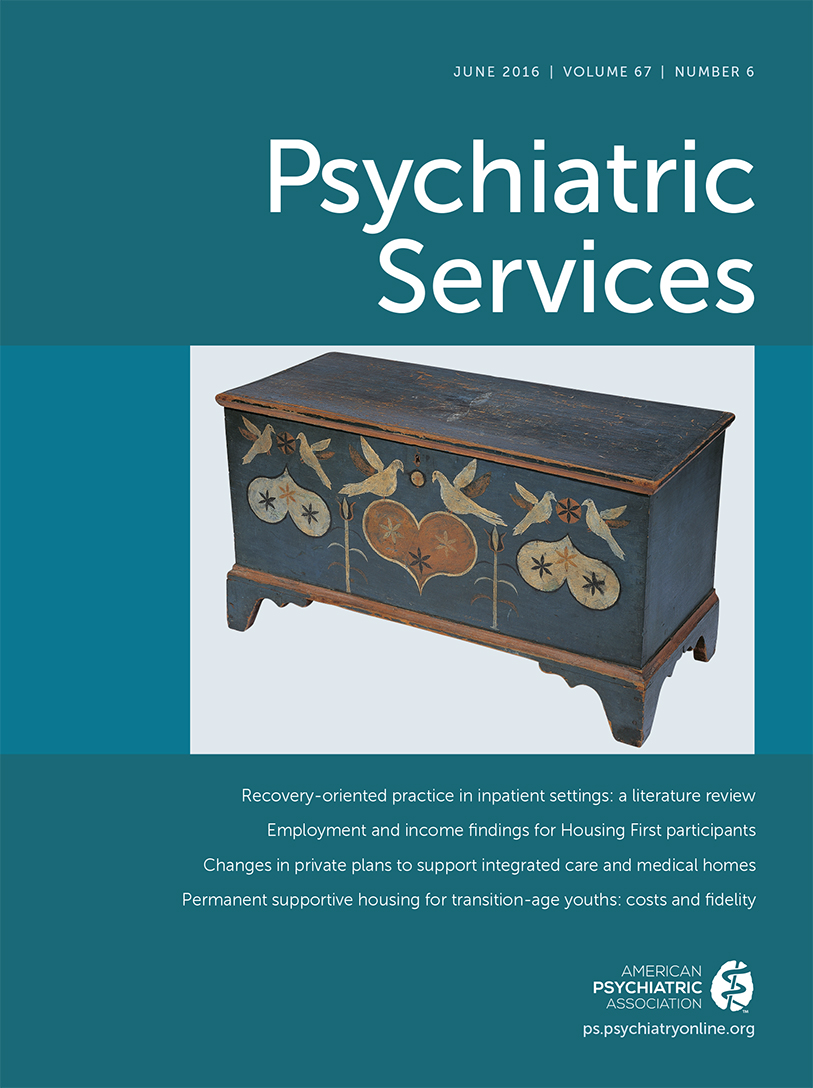A New Editor for Psychiatric Services in 2017
In January 2017, Lisa Dixon, M.D., M.P.H., will become the new editor of Psychiatric Services. She is an inspired choice. I am retiring at the end of this year because of APA’s term limits for journal editors, and for no other reason, so I am pleased to see such a talented, committed person take over.
The April PN Update item announcing Lisa Dixon as the new editor mentioned all of the basics. Lisa is a professor of psychiatry at Columbia University Medical Center, where she directs the Division of Behavioral Health Services and Policy Research, as well as its Center for Practice Innovations within the New York State Psychiatric Institute. She is a mental health services researcher as well as an administrator, an educator, and a supportive mentor to many in our field. She is also the developer and implementer of various evidence-based interventions and a champion of effectiveness and the role of data in the design of programs and all psychiatric services.
Lisa Dixon brings many additional gifts and experiences to her new position that might not be as widely known. These qualities also tell us about what is needed to be a good editor in changing times. Lisa is an early adopter of technology—and also a thoughtful one—who tries new approaches but does not rush in. New technologies are changing the ways in which we learn and practice, and Lisa has experience with distance learning and the use of video and social media in our work. Lisa is a major proponent of shared decision making, which recognizes the critical importance of involving all of the parties in a clinical decision. This approach can be generalized to the editing process, which requires thoughtful decisions balancing the views of authors, reviewers, and our readers.
Lisa is a family member, as clinicians say. She often discusses her brother and the impact of his mental illness on her family. She has been a leader of the movement to involve families in services and policy. This is a valuable perspective for an editor of Psychiatric Services. In addition, Lisa is a collaborative leader. She knows how to elicit advice and then use it to make a decision. She is not afraid to change her views, however, which is a good trait in an editor. She is flexible but also firm. Lisa is detail oriented and precise. She is not satisfied with a lot of hand-waving, and she wants to know exactly what you mean by what you write.
Lisa served on the editorial board of Psychiatric Services for eight years. She is the coeditor of our column on Research and Services Partnerships. She is one of a small cadre of devotees of the journal who has contacted me month after month with comments about each issue, and I sometimes felt that she had read the papers even more carefully than I read them.
I thank the search committee members for their deliberations and their decision. It is important for readers to know that the editor of the journal does not name a successor; the process is rigorous and entirely independent of the current editor. So even though three editors in a row have spent substantial time at the University of Maryland, none of us did anything to create a dynasty. The pattern says more about the commitment of the university’s Department of Psychiatry to conducting research on the delivery of services than it does about a planned succession. As investigators would put it, it is a matter of selection rather than causation.
As I write this, it is late March, and I am cognizant of the fact that by the time you read this in June, Lisa Dixon’s selection as the new editor is no longer news. Publishing has changed in terms of speed and modalities, but good old print publication of academic scholarship has its merits. It is like the slow food movement, going for deliberate quality over lightning speed. Print has staying power in something tangible, unlike the ephemeral tweets of electronic media. Although I can appreciate speed in publishing—and during my tenure as editor the journal introduced Psychiatric Services in Advance, a publish-online-ahead-of-print model—I still like my print version of the journal, with the art on the cover. I like old things—art and artifacts. It is a long-standing attraction and pleasure. I am old-fashioned in that way. But now it is time for a change.
Psychiatric Services will be in outstanding hands under the leadership of Dr. Dixon.



